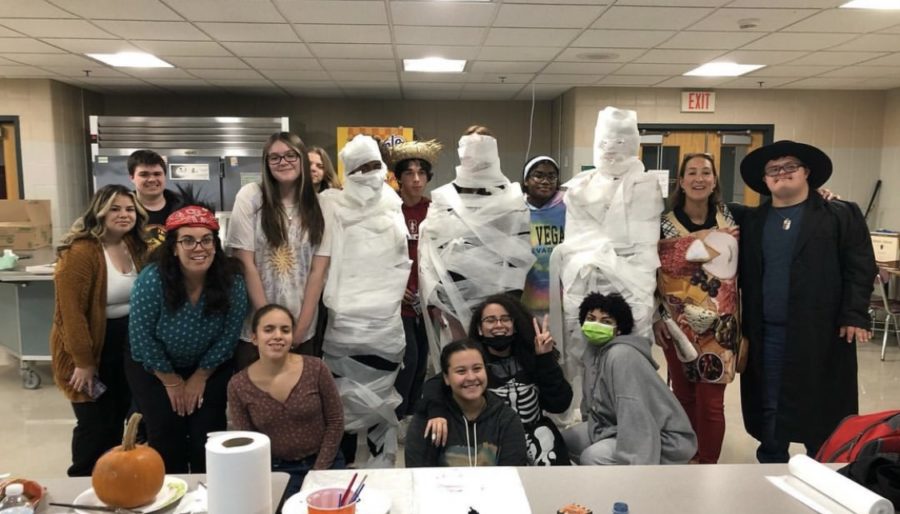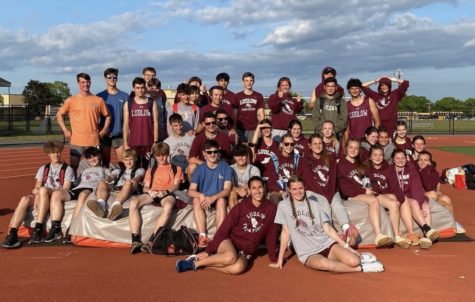Sports and Clubs: Can a Student Successfully Participate in Both?
May 30, 2023
At LHS, there are two broad categories for after-school activities: sports and clubs. But a student can only do so much in their free time, especially when two things that they may wish to participate in are at the same time. Some can successfully do so, while others found it too taxing to attempt to do both. A student cannot give an equal amount of effort into both activities, and sometimes has to choose between them.
Though it would be difficult, eradicating this problem would be beneficial to students so that they can participate in multiple activities that pique their interest without having to choose.
CONFLICTS
Conflicts are a part of everyday life. People will have multiple things planned for the same time, and sometimes cannot finagle their way into attending both. Sometimes it is on a day to day basis, but other times, it can force someone into having to choose between two things.
As junior John McClintock articulated, “scheduling was the foil to my hopes of doing sports and clubs. I had already been made president of the Tabletop Games Club, and also had a personal obligation as the co-founder to the D&D Adventure Ensemble. I also was a regular member of the GSA, although this I was willing to drop to join track and field. However, the esteemed Mr. Walsh said that track and field was, unfortunately a daily commitment, and with this clash of commitments, I chose the pre-existing ones.”
I personally have had to give up multiple activities throughout my life to be able to participate in others. In seventh grade, I ultimately had to give up dance to continue to participate in both sports and other after-school activities such as Robotics Club, Performing Arts Club, Battle of the Books, and others that may seem foreign in this school. Then, in sophomore year, I had to choose between doing sports or participating in clubs like Best Buddies and the Cub and other activities outside of school. Conflicts forced me to close some doors that I still had interest in keeping open due to the scheduling of the events.
EFFORT
Even though many have to choose sports or clubs, some have found ways to participate in both. Those who could do so, however, found it hard to put an equal amount of effort into both the club and the sport.
Sophomore Jack Favata expressed, “When I did the drama club during my volleyball season, it was super hard to put the same amount of effort into each. I always felt tired after my sports practice and was exhausted for rehearsals. I was there each night until 9:00.”
Doing both sports and clubs can put a huge strain on students, especially with the daily stress of homework. Students should be able to participate in any activities they choose with ease, but instead have to have the weight of scheduling and putting an equal amount of effort into their schoolwork as well as their outside activities on their shoulders 24/7.
Though, some have figured out a way to successfully maneuver around their schedules to fit in both.
Freshman Samuel Pontes voiced how he has “successfully been able to play sports and participate in clubs, for the particular reason that I am able to attend meetings and other events for both, I believe I have been able to successfully balance clubs and athletics at school.”
Others prefer to delegate different times of the year to different activities.
Tabletop Games Advisor Mr. Snow stated that “many students will only come to the tabletop game club during their off-season from sports.”
CONVENIENCE
Keeping both sports and clubs directly after school may make it harder for students to participate in both; however, for those that only do one, it allows for them to easily transition into their chosen activity once school ends. These activities being directly after school allow students to be able to stay at school for longer, rather than having to leave and then come back.
Cross Country and Track and Field Coach Mr. Walsh affirmed that it would be “hard to change the times because it is convenient right after school.”
Mr. Snow further specified that “It’s unlikely that sports or clubs would be able to change their times to accommodate students who want to do both. Extracurricular activities usually make the most sense to occur immediately after school since students are already here and so that they can leave school grounds at a reasonable time afterward.”
SOLUTIONS
Some students have thought of various solutions to make participating in sports and clubs easier.
John McClintock proposed that “Sports all encompassing temporal requirements would make them be less affected should they be forced to yield to the scheduling of clubs. If one goes to two clubs a week and misses two out of the ten hours of practice every week, they are still doing 80% of the practice, rather than the alternative of doing 0% of the clubs. And with training sessions made to expect and work around this fact, it would be just as effective as our current system,” as well as the thought of “a recreational sect of sports, for people who may wish to play and practice sports without the stress and stakes of competing against other schools.”
I had also thought that sports could maybe move their times until 3:30 so that students who wish to participate in clubs that go until 3:00 can be able to go to the full meeting as well as have time in between meetings and practices. Another thought of mine would be lowering the commitment of going to a sport every day; however, that would be near impossible considering the varsity-level sports at our school.
UNDERSTANDING
Mr. Walsh, wanting to try and help accommodate students that don’t want to choose, stated that “It makes it easier if coaches and advisors communicate and work together so the students can do both.”
Those who have been successfully able to do both have exclaimed that teachers are extremely understanding of their dual commitments.
Samuel Pontes mentioned communication as well, explaining how “if you are able to communicate well, you don’t have to sacrifice one or the other,” as well as how “club advisors and coaches understand my commitment to the clubs and sports.”
Jack Favata also voiced how the advisors and coaches are understanding, recounting how “it was super hard to go to both, but the director and coaches were super understanding.”
Though both sports and clubs come with much commitment and sometimes having to choose, the ability to participate in both is still accessible to students who enjoy engaging in multiple different activities throughout the week.



